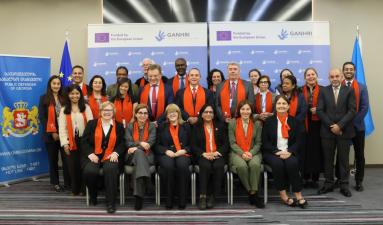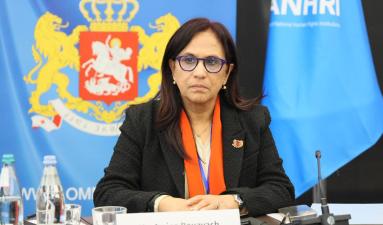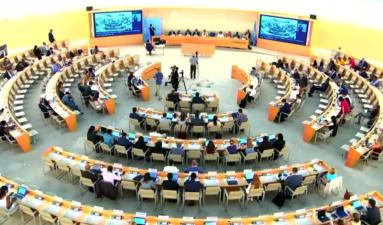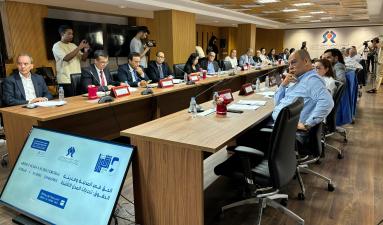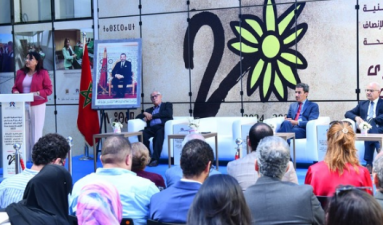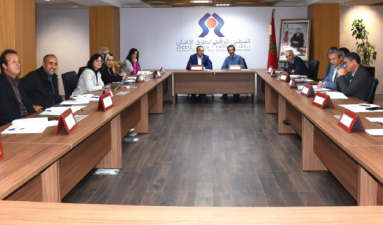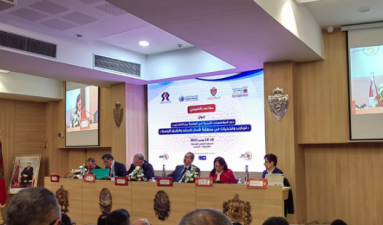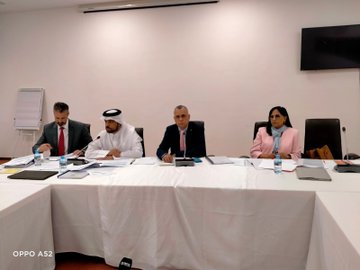
The National Human Rights Council (CNDH), represented by a delegation led by Mrs. Amina Bouayach, Chairperson of the Council, participated in the Arab Network for National Human Rights Institutions (ANNHRI) Conference and its 19th General Assembly on "Integrating Human Rights into Public Policies" organized on 27 and 28 July 2022, in Nouakchott, Mauritania.
On this occasion, Mrs. Bouayach, on behalf of the CNDH and its members, congratulated Mr. Ahmed Salem Bouhebeini, Chairman of the National Human Rights Commission in Mauritania, on his election on Wednesday 27 July 2022, in Nouakchott, as President of the ANNHRI.
On Thursday 28 July 2022, Mrs. Bouayach participated in the 19th General Assembly of the Arab Network, chaired by Mr. Salem Bouhebeini, the new president of the Network. This event focused on discussing the implementation of the 2022 action plan and the draft action plan for the year 2023.
The CNDH Chairperson also met with Mr. Rifaat Mirghani, Chairman of the Temporary Steering Committee of the National Commission for Human Rights in Sudan. Mrs. Bouayach addressed the unprecedented confrontations at the Melilla crossing, trial observation and individual cases. She also approved the proposal of Mr. Rifaat Mirghani for strengthening the capacities of the Mauritanian Commission members and staff.
On the side-lines of this event, Mr. Abdelhafid Admino, CNDH member, delivered a lecture on the CNDH strategy related to the effectiveness of rights and highlighted the need to include legal and non-legal factors to access and enjoy them.
In this context, CNDH member noted that the COVID-19 pandemic contributed to changing the various rules for elaborating and implementing public policies, particularly with regard to defining and reconsidering the definition of development. It emphasized the overlap among the various political, economic, social and environmental dimensions in the development process.
Following this perspective, Mr. Admino underlined that the CNDH worked through all available legal means, particularly through its Annual Reports, to monitor the extent to which basic rights are respected and promoted in public policies. The CNDH also provided recommendations and proposals related to these policies, such as the memorandum submitted by the CNDH to the Prime Minister, which included proposals and recommendations to enhance the effectiveness of rights within public policies.
Through this memorandum, Mr. Admino added, the CNDH emphasized three main approaches on:
1. Strengthening the human rights-based approach according to the United Nations human rights system literature based on the principles of participation, accountability, equality, non-discrimination and the principle of empowerment;
2. Transition from a needs-based model for development cooperation to a rights-based model in a way that enhances its impact on reducing differences between groups and fields;
3. Emphasizing the causal relationship between the continuous deterioration of the environment and the increasing area of poverty and the exacerbation of disparities in access to basic human rights.
By keeping up with the production and implementation of public policies in Morocco, the CNDH noted that ensuring human rights through public policies mainly goes through:
- Adopting a human rights-based approach in preparing and implementing public policies;
- Priority of reducing social and territorial inequalities;
- Need for the State to play its full role in ensuring and protecting rights, particularly since the pandemic has emphasized the importance of the State’s role in public policies in general, and in social public policies in particular;
- Building an economy capable of financing rights; etc.

